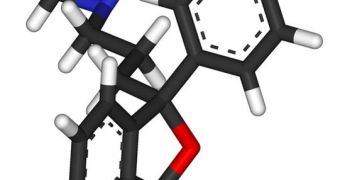Researchers in the United States have recently discovered a very worrying link between a commonly-used antidepressant drug and people's risks of developing heart damage. The connection is triggered only when the medication is consumed above certain dosage levels.
Experts at the US Food and Drug Administration (FDA) tried to determine the effects that the antidepressant Celexa (citalopram hydrobromide) causes on the human body. They discovered that the chemical is linked to increased risks to the heart.
This was only true if the drug was consumed in doses exceeding 40 milligrams (mg) daily. For smaller doses, no statistical correlation – either positive or negative – could be drawn as far as effects on the heart go, PsychCentral reports.
What the drug does is it triggers abnormal changes in the heart's electrical activity patterns. In the long run, this can impair heart function and lead to severe damage. Psychiatrists now need to be aware of this when prescribing the medication, as do cardiologists.
The new findings should not affect prescriptions for this drug, since the chemical does not have improved effects against depression if consumed in doses exceeding 40 mg per day. As such, patients should have no incentive to consume more than their prescribed daily doses.
This new FDA investigation is the latest in as string of studies that discovered a wide range of negative side-effects for a class of antidepressant drugs called selective serotonin reuptake inhibitors (SSRI).
In a previous investigation, it was revealed that this class of chemicals increases seniors' risk of heart diseases such as stroke, and early death. The experts behind that study recommended that psychiatrists use an older class of drugs for the elderly.
“Changes in the electrical activity of the heart (prolongation of the QT interval of the electrocardiogram [ECG]) can lead to an abnormal heart rhythm (including Torsade de Pointes), which can be fatal,” a press release on the FDA website reads.
“Patients at particular risk for developing prolongation of the QT interval include those with underlying heart conditions and those who are predisposed to low levels of potassium and magnesium in the blood,” the document adds.
“The citalopram drug label has been revised to include the new drug dosage and usage recommendations, as well as information about the potential for QT interval prolongation and Torsade de Pointes,” the FDA concludes.

 14 DAY TRIAL //
14 DAY TRIAL //